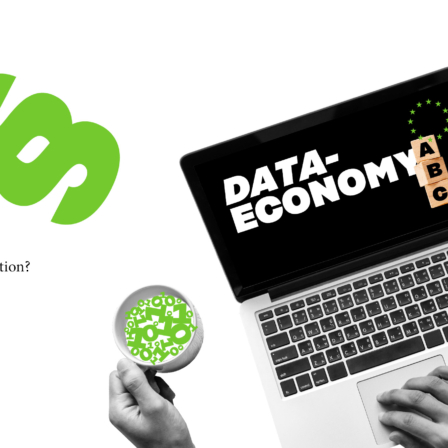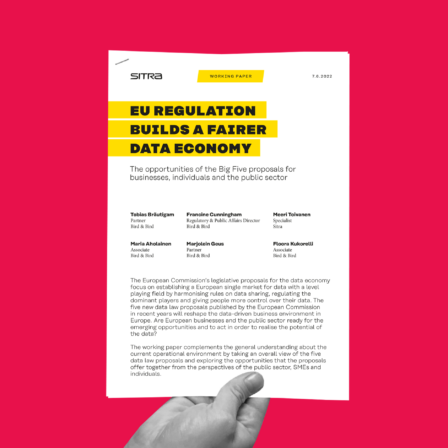For some 20 years, the online platforms of the digital giants have operated like the Wild West. In the early years, rules were not needed because social media was still small, but today the digital giants have become so large and socially influential that they are able to cause real harm to people’s well-being and business operations.
As expected, the European Commission, which is looking for solutions to the problem, has identified the so-called gatekeeper companies – the biggest digital giants – whose activities will be subject to new restrictions in the EU’s single market. From March next year, smaller companies using the services of digital giants can expect fairer common rules and opportunities to compete.
The gatekeepers and their regulated services are familiar to most of us:
- Alphabet: Google Maps, Google Play, Google Shopping, YouTube, Google Search, Google advertising, Chrome, Google Android
- Amazon: Amazon advertising, Amazon Marketplace.
- Apple: App Store, Safari, iOS
- ByteDance: Tiktok
- Meta: Facebook, Instagram, Meta Marketplace, Whatsapp, Messenger, Meta advertising
- Microsoft: LinkedIn, Windows PC OS
This is a massive change in the regulation of social media platforms and digital services that Finnish businesses should be aware of. Now is the time to consider what opportunities the regulation of the biggest digital giants can bring to your business: in terms of advertising, visibility, choice of additional services for businesses, switching providers and competing directly with the digital giants.
What is a gatekeeper?
- Gatekeepers are technology companies with a dominant market position.
- Their services have very high numbers of users in the EU: at least 45 million monthly active users and at least 10 000 active business users.
- Their turnover is at least Eur 7.5 billion or a market value of Eur 75 billion.
- Services provided by gatekeepers may include search engines, social media services, video sharing platforms, instant messaging services, operating systems, smartphone app stores, cloud services or advertising services.
- The Commission designates gatekeepers and has specific powers to both monitor and impose significant fines on them.
Changes will benefit Finnish SMEs
So what will change for a company that uses the platforms of digital giants?
The EU’s Digital Markets Act (DMA) will curb the power of the biggest technology companies and will in practice benefit small and medium-sized enterprises that compete with the offerings of the digital giants. Only the largest companies of all, the gatekeepers and the services they provide will be subject to the obligations of the Act from March 2024.
In short, there are at least three ways in which a business can benefit from the regulation as a user of, or competitor to, a gatekeeper’s services.
- More alternatives to the digital giants’ services may open up.
- Others will also be able to benefit from the data services of a digital giant.
- The algorithmic recommendations and search results obtained by using the services of a digital giant will be more fairly determined.
Let’s look at some concrete examples of the changes:
The digital giant’s platform must not favour its own products at the expense of the products advertised or sold on the platform. For example, Amazon sells similar products to those sold by many merchants using Amazon’s platform. From next spring, Amazon will no longer be able to artificially push its own products to the top of search results or otherwise recommend them over those of other merchants.
The platform will not be allowed to use information about its end users that it does not share with its business users. For example, in Google or Apple’s app stores, the gatekeepers have a wealth of information about the smartphone user (such as location, other apps installed) that the digital giants can use to recommend new apps and content. If the giants continue to use such data, the information must also be shared with the app developers (with the user’s consent).
Companies that advertise on the platform must have accurate information about the performance of their ads.
Companies that develop and sell mobile apps will be free to use payment, identification, mapping and other services of their choice in their apps. They will no longer be required to use similar services provided by the gatekeeper. For example, an Apple or Android app maker can offer its own payment service to its customers to pay for additional purchases. The business does not have to use the payment service provided by the platform, which typically takes up to 30% of sales.
Digital services of all sizes must be more accountable
The EU’s Digital Services Act (DSA) will also change how tech giants operate from February 2024. The aim is to ensure that digital services of all sizes take responsibility for the content they transmit, store or distribute. Digital service providers will have to comply with the new rules, such as content moderation, and be more transparent about their activities.
As a minimum, you should consider these changes in your business:
- Advertisements and other content recommendations that are shown to users must include a justification for their display. For example, when Amazon recommends products “you might like”, users must be able to see how the recommendations are generated.
- Users should be able to turn off recommendation algorithms altogether if they wish. For example, the video feed you see on Tiktok or Instagram is heavily determined by algorithms. Users should be able to choose a direct feed only, with videos from the content providers they follow, in chronological order.
- Minors can no longer be targeted with advertising based on user profiling. The same applies to the exploitation of sensitive information such as health, political affiliation, ethnicity or trade union membership.
- There will be clear rules on content production and moderation. If a platform removes a company’s content because it is illegal produced by a company, the platform must justify the removal and provide a quick solution.
- Online shopping will be safer. Marketplaces will have to verify their sellers’ details and make them available to customers.
Large platforms will also have to assess, address and monitor the social risks they pose, such as election interference, increased hate speech and negative consequences to people’s well-being.


